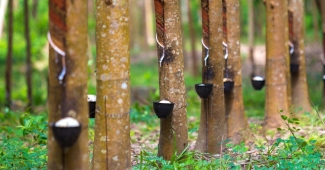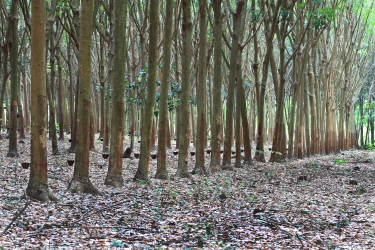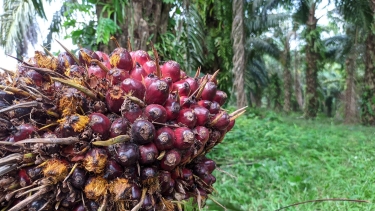New brief released on Thailand’s natural rubber industry’s response to the EU Deforestation Regulation

The European Forest Institute (EFI) has published a brief on Thailand’s natural rubber industry, focusing on its response to new market requirements, particularly the European Union Deforestation Regulation (EUDR).
As the world’s largest producer of natural rubber, Thailand produced over 4.7 million tonnes in 2022, which constitutes around one-third of global rubber production. Notably, 90% of Thailand’s natural rubber is produced by smallholders, involving 1.68 million individuals working across 3.9 million hectares of plantation area. This sector is vital for the economy and rural livelihoods, with nearly 25% of all agricultural households in Thailand engaged in rubber production.
Given the significant role of rubber in Thailand's economy, efforts are being made to support EU operators' compliance with the EUDR and to address potential challenges faced by Thai farmers, traders, and processors.
The newly published brief by EFI, developed in collaboration with the Rubber Authority of Thailand (RAOT), delves into the current challenges and opportunities within Thailand’s rubber sector. It covers several critical areas:
- Mapping natural rubber production areas
- Registering smallholder rubber farmers
- Tracing natural rubber supply chains
- Building capacity within the sector
- Enhancing information-sharing practices
These initiatives are designed to ensure that Thailand's natural rubber industry remains competitive and sustainable, meeting global standards and market demands.
EFI invites stakeholders and interested parties to review the brief for a comprehensive understanding.
Download the briefing: Thailand’s natural rubber producers are preparing for new market requirements


